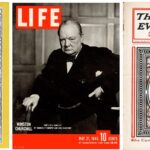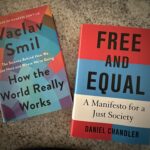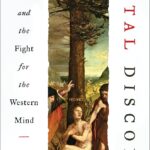 Though an unbeliever, Christopher Hitchens has written a tribute of sorts to the King James Bible which turns 400 years old this year: “Four hundred years ago, just as William Shakespeare was reaching the height of his powers and showing the new scope and variety of the English language, and just as “England†itself was becoming more of a nation-state and less an offshore dependency of Europe, an extraordinary committee of clergymen and scholars completed the task of rendering the Old and New Testaments into English, and claimed that the result was the “Authorized†or “King James†version. This was a fairly conservative attempt to stabilize the Crown and the kingdom, heal the breach between competing English and Scottish Christian sects, and bind the majesty of the King to his devout people. “The powers that be,†it had Saint Paul saying in his Epistle to the Romans, “are ordained of God.†This and other phrasings, not all of them so authoritarian and conformist, continue to echo in our language: “When I was a child, I spake as a childâ€; “Eat, drink, and be merryâ€; “From strength to strengthâ€; “Grind the faces of the poorâ€; “salt of the earthâ€; “Our Father, which art in heaven.†It’s near impossible to imagine our idiom and vernacular, let alone our liturgy, without them. Not many committees in history have come up with such crystalline prose.”
Though an unbeliever, Christopher Hitchens has written a tribute of sorts to the King James Bible which turns 400 years old this year: “Four hundred years ago, just as William Shakespeare was reaching the height of his powers and showing the new scope and variety of the English language, and just as “England†itself was becoming more of a nation-state and less an offshore dependency of Europe, an extraordinary committee of clergymen and scholars completed the task of rendering the Old and New Testaments into English, and claimed that the result was the “Authorized†or “King James†version. This was a fairly conservative attempt to stabilize the Crown and the kingdom, heal the breach between competing English and Scottish Christian sects, and bind the majesty of the King to his devout people. “The powers that be,†it had Saint Paul saying in his Epistle to the Romans, “are ordained of God.†This and other phrasings, not all of them so authoritarian and conformist, continue to echo in our language: “When I was a child, I spake as a childâ€; “Eat, drink, and be merryâ€; “From strength to strengthâ€; “Grind the faces of the poorâ€; “salt of the earthâ€; “Our Father, which art in heaven.†It’s near impossible to imagine our idiom and vernacular, let alone our liturgy, without them. Not many committees in history have come up with such crystalline prose.”
Writing in the Economist, Ann Wroe also pays tribute to the centrality of the King James Bible to our speech and culture: “Undoubtedly the King James has been enhanced for us by the music that now curls round it. “For unto us a child is born†(Isaiah 9: 6) can’t now be read without Handel’s tripping chorus, or “Man that is born of a woman†without Purcell’s yearning melancholy (“He cometh forth like a flower, and is cut down†Job 14: 2). Even “To every thing there is a seasonâ€, from Ecclesiastes (3: 1), is now overlaid with the nasal, gently stoned tones of Simon & Garfunkel. Yet the King James also lured these musicians in the beginning, snaring them with stray lines that were already singing. “Stay me with flagons, comfort me with apples, for I am sick of love†(Song of Solomon 2: 5). “Thou hast heard me from the horns of the unicorns†(Psalms 22: 21). “The heavens declare the glory of God; and the firmament sheweth his handywork†(Psalms 19: 1). “I am a brother to dragons, and a companion to owls†(Job 30: 29). Or this, also from the Book of Job, possibly the most beautiful of all the Bible’s books—a passage that flows from one astonishingly random and sudden question, “Hast thou entered into the treasures of the snow?†(Job 38:22):
Hath the rain a father? Or who hath begotten the drops of
dew?
Out of whose womb came the ice? And the hoary frost of
heaven, who hath gendered it?
The waters are hid as with a stone, and the face of the deep
is frozen.
Canst thou bind the sweet influences of Plaeiades, or loose
the bands of Orion? (Job 38:28-31)
“The beauty of this is inherent, deep in the original mind and eye that formed it.”





